Rustam Minnikhanov: ‘We need a systematic approach for the further development of agglomerations’
The republic proposes to create coordination and analytical centres for the development of urban agglomerations
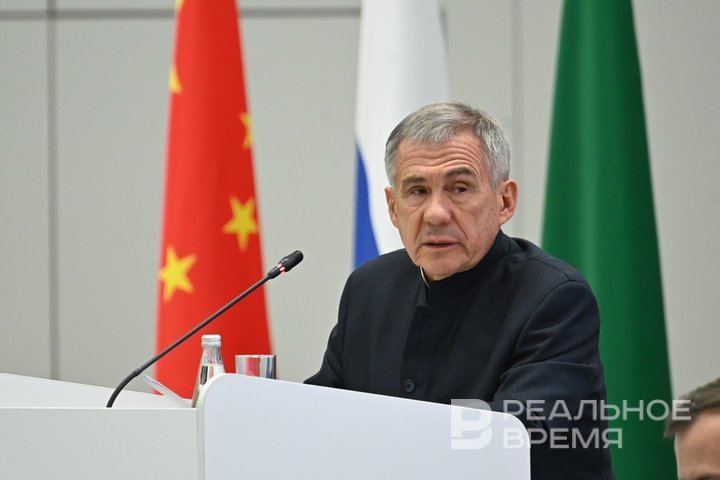
In parallel with the ROSTCHI: Russia and China — Mutually Beneficial Cooperation International Forum, REBUS International Forum is held at the Kazan Expo site under the motto “Agglomerations: experience, opportunities, challenges”. It is attended by representatives of 23 countries, including China, Saudi Arabia, Brazil, Qatar, as well as 60 regions of Russia, with a total of about 1,200 participants. The participants discussed issues relevant to the development of urban agglomerations, associated with infrastructure problems and pendulum migration. Read the details in the material of Realnoe Vremya.
“You can't just chase agglomeration”
Rustam Minnikhanov, the rais of the Republic of Tatarstan, spoke at the plenary session of REBUS dedicated to the opportunities and problems of urban growth. The issue is relevant for most regions of the country, the head of the republic noted.
“A systematic approach is needed for the further development of agglomerations. It is necessary to create an appropriate legal framework and mechanisms for attracting financial resources to urban infrastructure, to ensure balanced construction of housing, social and public facilities," said Minnikhanov, recalling that more than 3 million people live in three agglomerations of Tatarstan, they account for 85% of the region's GRP.
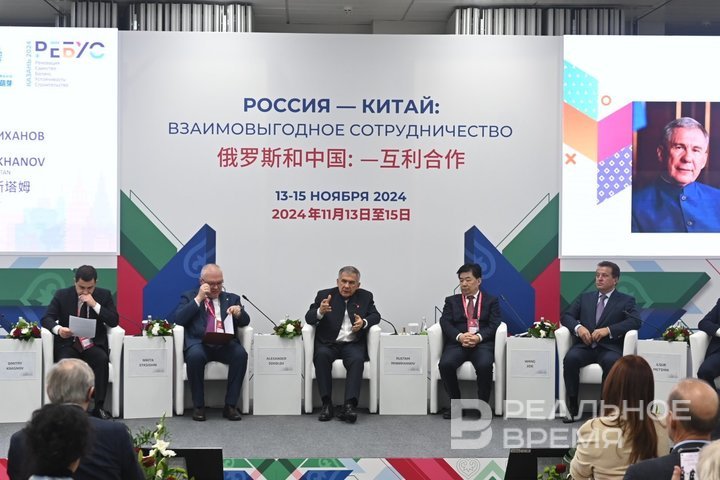
Recent years have been accompanied by record rates of housing construction, the rais of Tatarstan continued. He pointed out that 70% of the total housing in the republic is being built in the Kazan agglomeration alone. "110 million square metres were commissioned in Russia last year, 3.5 million in the republic," he said. At the same time, errors in housing construction lead to an overload of the transport network, a shortage of engineering and social infrastructure. “It is impossible to solve these issues without federal support," Rustam Minnikhanov summed up.
“It is impossible to chase only agglomeration, to chase only rigid urbanisation," said Nikita Stasishin, the deputy minister of construction and housing and utilities of the Russian Federation, calling one of the modern problems the increase in the age of women at the birth of their first child. “If we do not develop not only 200 strongholds, if we do not develop villages, small towns, small agglomerations with kindergartens, schools, clinics, then we will not grow demographically.”
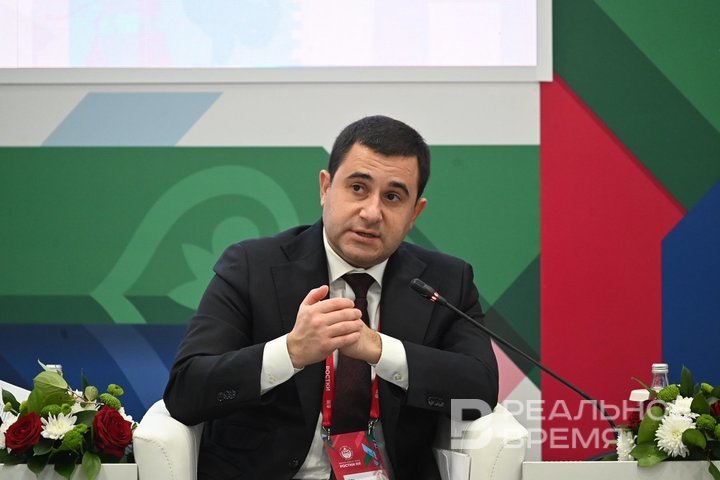
“A proactive policy towards achieving the effectiveness of all management processes in the Kirov agglomeration is not a tribute to fashion, trend, but a necessity," the governor of the Kirov region, Alexander Sokolov, agreed with him.
“The master plan is, first of all, a work plan for a long period for us," said Dmitry Krasnov, the deputy chairman of the Cabinet of Ministers of the Chuvash Republic.
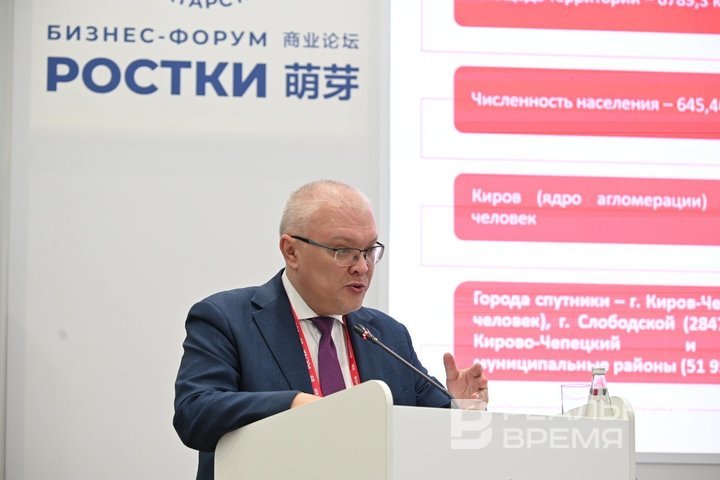
“Agglomeration should have magnets”
“As part of his message to the Federal Assembly this year, Russian President Vladimir Putin instructed to develop 200 master plans for agglomerations and large cities. And of course, we are ready to share our experience, replicate our achievements and help the regions," the rais recalled.
At the same time, Tatarstan is ready to learn from colleagues, Rustam Minnikhanov noted. It was especially interesting for the rais of the republic to listen to Wan Zhide, Chairman of the People's Political Consultative Conference of Xi'an. The Tatarstan leader even shook his hand after the speech.
Xi'an is about 3,100 years old. With an official population of about 13 million, it is one of the largest megacities in the world. It is noteworthy that there are about 30 universities in Xi'an, most of them are state-owned.
“The agglomeration should have magnets, centres of attraction," Rustam Minnikhanov explained a little earlier. “We believe that youth is important. There should be good educational institutions, secondary specialised education. And of course, anchor higher technical schools.”
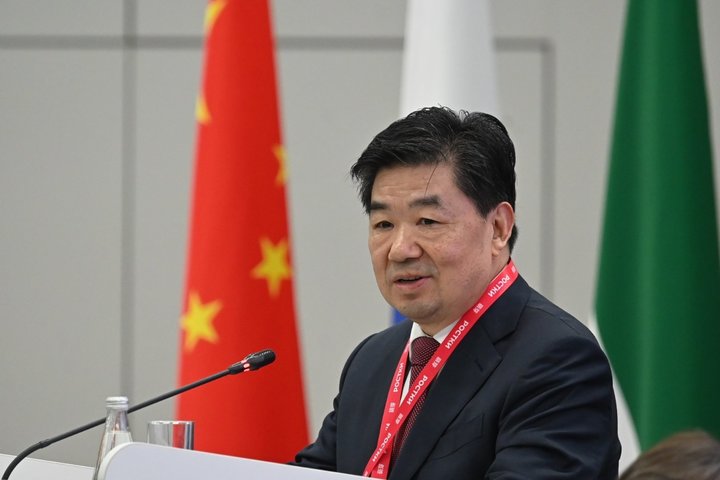
Wakass Elahi, the deputy director of the Department of Trade Organisations at Pakistan's Ministry of Commerce, on the other hand, came to learn from Tatarstan. The major cities in his country face many challenges — an informal labour market, overpopulation (in Lahore, there are 24,000 people per square kilometre).
“Kazan in the near future will become one of the largest cities at the level of Moscow and St. Petersburg," Elahi forecasts.
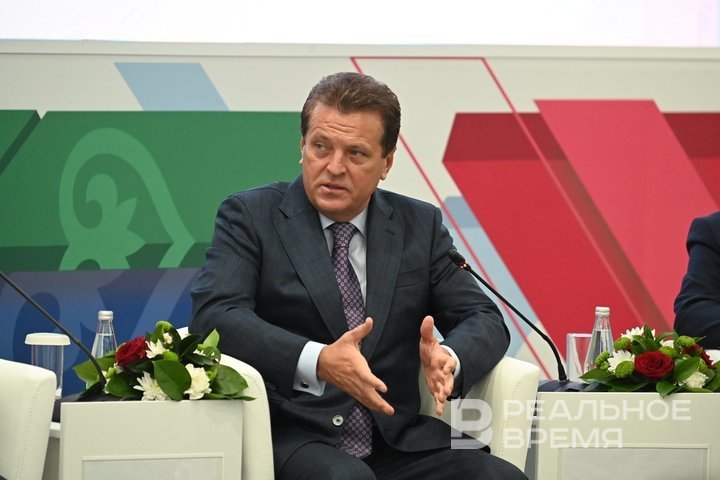
“We need to see how people find practical solutions”
In general, the problems of agglomerations are common, so it is possible and necessary to study with foreign friends, the speakers noted. Urbanist Omar Nagaty, who arrived from Egypt and works at the Cairo Cluster's Urban Studies, Education, and Environmental Research Laboratory, shared that his ancient city was initially built without an architectural plan. But the problem will not be solved by interfering in these ancient neighbourhoods, where there is actually no chaos, on the contrary, everything is thought out.
“Instead of starting the equalisation from above, you need to go from below and see how people find practical solutions — and combine them with scientific ones," Nagaty gave a hint.
“If we compare ourselves to our Chinese colleagues, we are moving slowly, almost standing still," reflected the mayor of Kazan, Ilsur Metshin. “We are not crows, we won't live for 350 years; decisions need to be made here and now.”
The mayor reminded that over the past 20 years, the Kazan agglomeration has grown by half a million people: “And the decisions we are making now are already yesterday's news.” At the same time, one of the necessary solutions is centralised management, explained the mayor of the Tatarstan capital.
“Every day, a permanent agglomeration body in the person of the municipality or the centre for making all decisions should think about this situation," said Metshin.
The topic of the conversation was continued by Oleg Grigoriev, the director of the Institute of Spatial Planning of the Republic of Tatarstan.
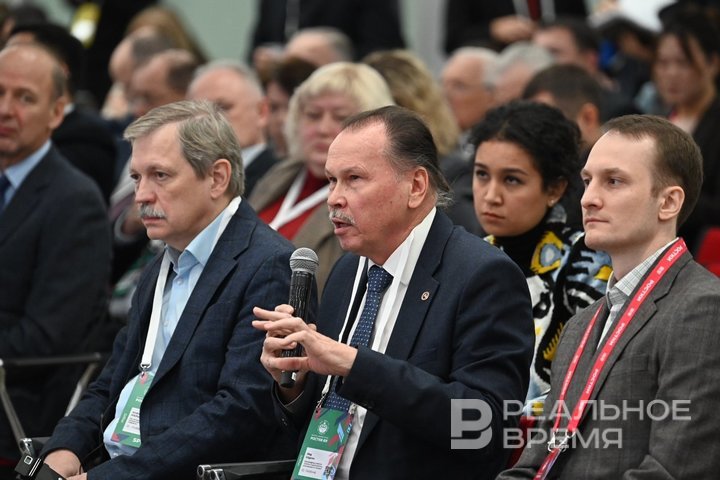
“Since the beginning of this year, the Republic of Tatarstan has followed the path of digitalisation in the field of construction," he said. “Powers have been transferred to all municipalities, excluding Kazan and Naberezhnye Chelny. Naberezhnye Chelny are switching to a more civilised path starting from January 2026. Kazan — possibly from January 2027. Digitalisation has shown very good results. What we have seen, in terms of the level of documentation that was adopted separately, and what we are doing now, are two big differences.
At the same time, the agglomeration needs a coordination and analytical centre that will prepare solutions, analyse the situation, passing data to the head, Grigoriev stressed. The rais of Tatarstan noted that there is still a lot of work to do:
“We are not putting an end, we are starting," summed up Rustam Minnikhanov.